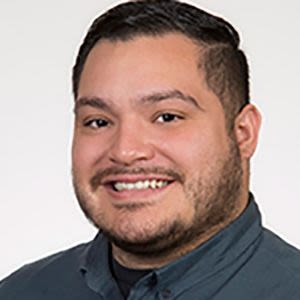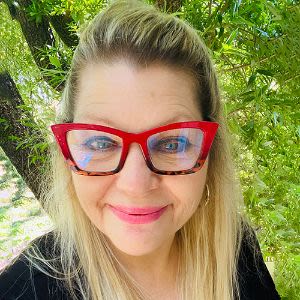Sonoma, California, United States
Align Recovery Centers
Verified
Verified
This provider’s information has been quality-checked by Recovery.com’s Research Team for accuracy and completeness, including center verification through appropriate third-party organizations.
Joint Commission Accredited
The Joint Commission accreditation is a voluntary, objective process that evaluates and accredits healthcare organizations (like treatment centers) based on performance standards designed to improve quality and safety for patients. To be accredited means the treatment center has been found to meet the Commission's standards for quality and safety in patient care.
Provider's Policy
We expect that most of our clients will pay for their stay with us through their insurance providers. We are in the process of credentialing as in-network with a number of insurance companies and currently accept all insurance companies as an out-of-network benefits provider.
Estimated Cash Pay Rate
The cost listed here ($17,500/detox & residential) is an estimate of the cash pay price. Center pricing can vary based on program and length of stay. Contact the center for more information. Recovery.com strives for price transparency so you can make an informed decision.
About Align Recovery Centers
Align Recovery Centers is a family-run treatment center providing medical detox, residential care, intensive outpatient, and outpatient services for clients with addiction and co-occurring mental health conditions. Through evidence-based therapies, enriching psychoeducation, and robust support services, their mission is to equip clients with the tools and resilience they need to navigate the complexities of recovery and embrace a healthier life.
Medical Detox
Align Recovery Centers understands detoxification is a profoundly personal experience. Their team of professionals creates a detox plan tailored to each client’s unique needs, ensuring optimal safety, comfort, and efficacy throughout their detox journey. Align Recovery Centers provides a comprehensive admissions evaluation and 24/7 medical support. They help clients detox from alcohol, opioids, benzodiazepines, stimulants, and marijuana. Align Recovery Centers offers medication-assisted treatment as needed.
Residential Program and Therapies
Align Recovery Centers’ residential program focuses on holistic healing—nurturing the mind, body, and spirit. Treatment emphasizes the journey toward self-discovery and embracing a brighter, sober future. Individual therapy sessions address personal traumas, mental health concerns, and triggers, forming the basis for developing effective coping strategies. Group therapy sessions offer a space for mutual support and shared healing experiences. Align Recovery Centers’ qualified staff provide relapse prevention training and life skills development. Their residential program typically lasts 30-90 days. Every Wednesday families participate in family therapy, and Sundays families can visit on-site.
Outpatient Services
Align Recovery Centers offers various “recovery maintenance” programs for clients seeking continued recovery support. Intensive outpatient and outpatient programs provide evidence-based and holistic healing with on-site and virtual attendance in ongoing group therapy sessions. Clients can seamlessly transition to these lower levels of care after engaging in their residential program.
Read More

Insurance Accepted
Provider's Policy:We expect that most of our clients will pay for their stay with us through their insurance providers. We are in the process of credentialing as in-network with a number of insurance companies and currently accept all insurance companies as an out-of-network benefits provider.
A Full Continuum of Care
Align Recovery Centers offers multiple levels of care to meet clients where they are. Their medical detox program provides comprehensive clinical support and medication-assisted treatment as needed. Their 30-90 day residential program blends evidence-based and holistic healing modalities. Clients can attend their intensive outpatient or general outpatient program on-site or virtually for continued recovery.
Evidence-Based Therapies
Align Recovery Centers’ program centers around clinically-backed, evidence-based therapies delivered by experts. They use cognitive behavioral therapy (CBT), motivational interviewing, contingency management, and dialectical behavioral therapy (DBT). Align Recovery Centers treats trauma as a root cause of addiction with eye movement desensitization and reprocessing therapy (EMDR) and narrative therapy.
Holistic Healing
Align Recovery Centers provides various holistic healing methods to promote lasting recovery. Clients engage in yoga, art therapy, expressive writing, hypnotherapy, and music therapy. Their unique adventure therapy program provides outdoor challenges, ropes courses, and team-building exercises, which promote personal growth, self-esteem, and problem-solving skills development. Align Recovery Centers provides equine therapy, as well.
A Peaceful Setting
Align Recovery Centers’ location near Napa Valley provides peace and privacy in a rural setting, allowing clients to separate from triggers in day-to-day life. Clients can have shared or private bedrooms with plenty of outdoor space for relaxing in the sun. World-renowned nutritionist and drug rehabilitation specialist David Wiss designs nutritious and delicious meal plans.

Center Overview
Estimated Cash Pay Rate
Older Adults
Addiction and mental health treatment caters to adults 55+ and the age-specific challenges that can come with recovery, wellness, and overall happiness.
Executives
Executive treatment programs typically directly support the needs of people who manage businesses and may provide flexible schedules and office space to allow work during treatment.
LGBTQ+
Addiction and mental illnesses in the LGBTQ+ community must be treated with an affirming, safe, and relevant approach, which many centers provide.
Men and Women
Men and women attend treatment for addiction in a co-ed setting, going to therapy groups together to share experiences, struggles, and successes.
Midlife Adults
For adults ages 40+, treatment shifts to focus on the unique challenges, blocks, and risk factors of their age group, and unites peers in a similar community.
Mild Disabilities
Adults with mild physical or intellectual disabilities receive treatment catered to their specific needs in a safe and clinically supportive environment.
Professionals
Busy, high-ranking professionals get the personalized treatment they need with greater accommodations for work, privacy, and outside communication.
Veterans
Patients who completed active military duty receive specialized treatment focused on trauma, grief, loss, and finding a new work-life balance.

Treatment Focus
This center treats primary substance use disorders and co-occurring mental health conditions. Your treatment plan addresses each condition at once with personalized, compassionate care for comprehensive healing.

Care Options






Treatment
Specializations
Alcohol
Using alcohol as a coping mechanism, or drinking excessively throughout the week, signals an alcohol use disorder.
Co-Occurring Disorders
A person with multiple mental health diagnoses, such as addiction and depression, has co-occurring disorders also called dual diagnosis.
Drug Addiction
Drug addiction is the excessive and repetitive use of substances, despite harmful consequences to a person's life, health, and relationships.
Holistic
A non-medicinal, wellness-focused approach that aims to align the mind, body, and spirit for deep and lasting healing.
Opioids
Opioids produce pain-relief and euphoria, which can lead to addiction. This class of drugs includes prescribed medication and the illegal drug heroin.
Post Traumatic Stress Disorder
PTSD is a long-term mental health issue caused by a disturbing event or events. Symptoms include anxiety, dissociation, flashbacks, and intrusive thoughts.
Residential
In a residential rehab program, patients live onsite, with access to daily treatment and 24-hour care. An average stay is 30-90 days.
Trauma
Some traumatic events are so disturbing that they cause long-term mental health problems. Those ongoing issues can also be referred to as "trauma."
Approaches
Evidence-Based
A combination of scientifically rooted therapies and treatments make up evidence-based care, defined by their measured and proven results.
Holistic
A non-medicinal, wellness-focused approach that aims to align the mind, body, and spirit for deep and lasting healing.
Individual Treatment
Individual care meets the needs of each patient, using personalized treatment to provide them the most relevant care and greatest chance of success.
Twelve Step
Incorporating spirituality, community, and responsibility, 12-Step philosophies prioritize the guidance of a Higher Power and a continuation of 12-Step practices.
Therapies
1-on-1 Counseling
Patient and therapist meet 1-on-1 to work through difficult emotions and behavioral challenges in a personal, private setting.
Trauma-Specific Therapy
This form of talk therapy addresses any childhood trauma at the root of a patient's current diagnosis.
Mindfulness Therapy
This ancient practice can be mental, emotional, and even spiritual. In meditation, you focus your attention on the present moment without judgement.
Art Therapy
Visual art invites patients to examine the emotions within their work, focusing on the process of creativity and its gentle therapeutic power.
Couples Counseling
Partners work to improve their communication patterns, using advice from their therapist to better their relationship and make healthy changes.
Experiential Therapy
With this approach, patients heal by doing. Therapists help patients process difficult emotions to speak, using guided activities like art or dance.
Expressive Arts
Creative processes like art, writing, or dance use inner creative desires to help boost confidence, emotional growth, and initiate change.
Conditions We Treat
Grief and Loss
Grief is a natural reaction to loss, but severe grief can interfere with your ability to function. You can get treatment for this condition.
Anger
Although anger itself isn't a disorder, it can get out of hand. If this feeling interferes with your relationships and daily functioning, treatment can help.
Anxiety
Anxiety is a common mental health condition that can include excessive worry, panic attacks, physical tension, and increased blood pressure.
Depression
Symptoms of depression may include fatigue, a sense of numbness, and loss of interest in activities. This condition can range from mild to severe.
Post Traumatic Stress Disorder
PTSD is a long-term mental health issue caused by a disturbing event or events. Symptoms include anxiety, dissociation, flashbacks, and intrusive thoughts.
Stress
Stress is a natural reaction to challenges, and it can even help you adapt. However, chronic stress can cause physical and mental health issues.
Trauma
Some traumatic events are so disturbing that they cause long-term mental health problems. Those ongoing issues can also be referred to as "trauma."
Substances We Treat
Alcohol
Using alcohol as a coping mechanism, or drinking excessively throughout the week, signals an alcohol use disorder.
Benzodiazepines
Benzodiazepines are prescribed to treat anxiety and sleep issues. They are highly habit forming, and their abuse can cause mood changes and poor judgement.
Co-Occurring Disorders
A person with multiple mental health diagnoses, such as addiction and depression, has co-occurring disorders also called dual diagnosis.
Cocaine
Cocaine is a stimulant with euphoric effects. Agitation, muscle ticks, psychosis, and heart issues are common symptoms of cocaine abuse.
Drug Addiction
Drug addiction is the excessive and repetitive use of substances, despite harmful consequences to a person's life, health, and relationships.
Ecstasy
Ecstasy is a stimulant that causes intense euphoria and heightened awareness. Abuse of this drug can trigger depression, insomnia, and memory problems.
Heroin
Heroin is a highly addictive and illegal opioid. It can cause insomnia, collapsed veins, heart issues, and additional mental health issues.
Methamphetamine
Methamphetamine, or meth, increases energy, agitation, and paranoia. Long-term use can result in severe physical and mental health issues.
Opioids
Opioids produce pain-relief and euphoria, which can lead to addiction. This class of drugs includes prescribed medication and the illegal drug heroin.
Aftercare
Experience
Personal Amenities
Amenities
Special Considerations
Center Pets
Addiction and mental health facilities with pets allow patients to interact with friendly dogs, cats, horses, and in some cases, even dolphins.
Executive Program
Addiction and mental health treatment for executives typically involves high discretion, greater technology access, and more private, 1-on-1 care.
Healthy Meals are provided
Great food meets great treatment, with providers serving healthy meals to restore nutrition, wellbeing, and health.
Activities
Yoga
Yoga is both a physical and spiritual practice. It includes a flow of movement, breathing techniques, and meditation.
Off-Site Activities
Off-Site Amenities
Professional Staff

Dr. Katie Hirst
Medical Director
MD

Elvis Rosales
Clinical Director
LCSW

Dana Hamilton
Executive Director
B.S., M.A., AMFT, SUDCC
Accommodations
Food & Nutrition
Treatment
Value
Sara
We love hearing about your treatment experience
Help individuals and families seeking treatment by sharing your first-hand experience with this treatment provider. Review Guidelines.











































